FREQUENTLY ASKED QUESTIONS
Signing Up

A donor designation on your S. C. driver’s license and/or a signed and witnessed donor card does grant authorization for organ and/or tissue recovery, but due to the suddenness and emotion surrounding the circumstances, both documents are rarely available at the time a family is approached regarding donation.
With the South Carolina Donor Registry your desire to donate is stored in a secure, confidential database. Should your death result in the opportunity for you to be a donor, an official record of your donor designation will be readily available and cannot be overturned by your family. Thus, should you be medically suitable to donate, your wishes will be respected and your family will be relieved of the burden of making a decision on your behalf.
Each state has its own laws regarding consent for organ donation. Some states have registries while others rely on donor cards or advance directives. If consent is not given through either of these means, all states defer to next-of-kin to make the donation decision on behalf of their loved one.
There is a national registry at RegisterMe.org. All matters concerning organ and tissue donation are under the jurisdiction of each state’s respective laws. On Donate Life SC you are shown the option of going to the Donate Life America website to click on the state in question.
If you are unable to sign up online or via the DMV, you may sign a donor card to indicate your wishes. However, you should share your decision with your next of kin or health care proxy in case the donor card is not available at the time you become a candidate to actually donate.
After You Sign Up
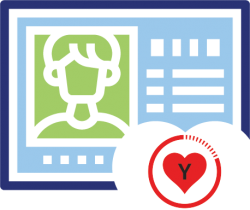
Donation Basics
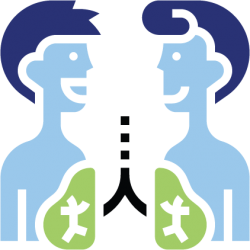
The most commonly transplanted organs are the kidneys, liver, heart, lungs, pancreas and small intestines.
As for tissues:
- Heart valves are used to replace defective valves; this is particularly life-saving for babies and small children because of the small number of pediatric hearts available for transplant
- Corneas can restore sight to the blind
- Skin is used for abdominal wall reconstruction, hernia repair, breast reconstruction post-mastectomy, and various other open wound repairs. Skin can also be recovered for burn victims
- Bone is used in orthopedic surgery to facilitate healing of fractures or prevent amputation, particularly for cancer and trauma patients
- Tendons are used to repair torn ligaments on knees or other joints
- Veins are used in cardiac by-pass surgery, particularly where the patient cannot provide his or her own veins
Many tissues that cannot be used for transplant can be recovered and used in a variety of research studies to advance cures for such potentially fatal diseases as Alzheimer’s, diabetes, cancer and others.
The Donation Process
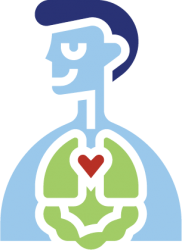
South Carolina is the service area of We Are Sharing Hope SC, the federally designated, non-profit organ procurement organization (OPO). We Are Sharing Hope is exclusively responsible for facilitating the donation process, and only the OPO’s authorized staff have access to both the donor and recipient medical information which makes accurate matching possible. Organ recovery and allocation are regulated by the Centers for Medicare and Medicaid Services, a division of the U.S. Department of Health & Human Services.
During the sign up process, check off the “Donation Limitations” box and check the “For Research” box under both Organs and Tissues.
If you have already signed up online or via the DMV, you may go to the registry website, click on Update My Registry Info, enter your login information, then specify donation limitations. While updating your profile you may also change your password and personal information or remove your name from the South Carolina Donor Registry.
Medical Questions

If a patient arrives at the hospital with a grave brain injury, the hospital is federally mandated to contact the local organ procurement organization (OPO). In South Carolina, LifePoint is the OPO. While the hospital continues aggressive life-saving efforts, LifePoint determines whether the patient is a registered organ and/or tissue donor. This information helps to guide the health care team regarding how the family should be approached should death be determined to be imminent for that patient.
Only if the patient is medically suitable to donate and only after the family has been informed of the patient’s imminent death is the opportunity to donate discussed with the family. Only after the family has been presented with documentation of the patient’s donor designation (which legally grants authorization to recover organs and/or tissues – or, in cases where there is no registration or donor card present, the family grants authorization) does the process move forward.
Matters of Money
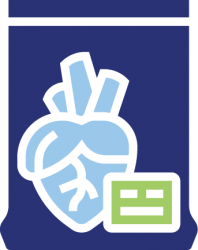
Family / Social Issues

Management of the Registry
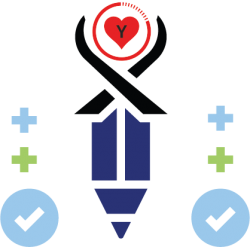
As a state-authorized public service, the South Carolina Donor Registry adheres to the strictest and most up-to-date guidelines to keep all personal information confidential. Aside from standard information such as name and address, the only sensitive information we require is place of birth, while mother’s maiden name and driver’s license number are optional. We collect this information because it is absolutely vital that we identify individual registrants with 100% certainty if they should ever be in a position to be an actual organ or tissue donor. We would never want to confuse a patient who is not registered with someone who is.
We assure you that every technical precaution is in place to protect the information from identity thieves. Of the 45+ state donor registries now in operation, there are no reported problems with unauthorized access to personal information.
Data Security

